Associations New
Anthropological Association of Ireland - AAI
 Anthropology is a small discipline on the island of Ireland and of relatively recent origins. There are two academic departments: that in Queen’s University, Belfast was established in 1973 (now in the School of History and Anthropology), and that in National University of Ireland Maynooth in 1983. The AAI came into being in 1987 with the objective of promoting the discipline by encouraging research and teaching, providing a forum for the exchange of ideas, and promoting acceptable standards of professional conduct.
Anthropology is a small discipline on the island of Ireland and of relatively recent origins. There are two academic departments: that in Queen’s University, Belfast was established in 1973 (now in the School of History and Anthropology), and that in National University of Ireland Maynooth in 1983. The AAI came into being in 1987 with the objective of promoting the discipline by encouraging research and teaching, providing a forum for the exchange of ideas, and promoting acceptable standards of professional conduct.
Web: anthropologyireland.org;
Publications: Irish Journal of Anthropology
Anthropology Southern Africa - ASnA
 ASnA was founded in 2001 with the merging of the two former anthropology associations in South Africa. These were the Association for Anthropology in Southern Africa (AASA) and the South African Association for Cultural Anthropologists (SASCA). In general, AASA members were associated with the English-speaking universities and SASCA members with Afrikaans-speaking universities, though membership was not confined to academics. The two associations were divided not only by language but also by epistemology (Social Anthropology in the case of AASA, Cultural Anthropology in the case of SASCA), and by ideology (in brief, agreement and disagreement with apartheid policies).
ASnA was founded in 2001 with the merging of the two former anthropology associations in South Africa. These were the Association for Anthropology in Southern Africa (AASA) and the South African Association for Cultural Anthropologists (SASCA). In general, AASA members were associated with the English-speaking universities and SASCA members with Afrikaans-speaking universities, though membership was not confined to academics. The two associations were divided not only by language but also by epistemology (Social Anthropology in the case of AASA, Cultural Anthropology in the case of SASCA), and by ideology (in brief, agreement and disagreement with apartheid policies).
Web: www.asnahome.org
European Association of Social Anthropologists - EASA
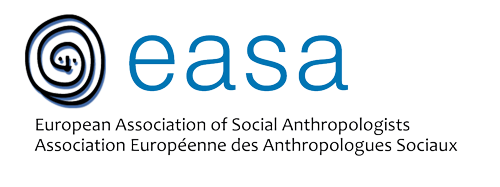 EASA is a professional association open to all social anthropologists either qualified in, or else working in, Europe. It is a society of scholarship, founded in January 1989 at a meeting of eighteen founder members from fourteen European countries, supported by the Wenner-Gren Foundation for Anthropological Research. This meeting drafted the Constitution and elected the Association's first Executive Committee (1989-90), chaired by Prof. Adam Kuper, Brunel University of London.
EASA is a professional association open to all social anthropologists either qualified in, or else working in, Europe. It is a society of scholarship, founded in January 1989 at a meeting of eighteen founder members from fourteen European countries, supported by the Wenner-Gren Foundation for Anthropological Research. This meeting drafted the Constitution and elected the Association's first Executive Committee (1989-90), chaired by Prof. Adam Kuper, Brunel University of London.
Web: easaonline.org
International Union of Anthropological and Ethnological Sciences - IUAES
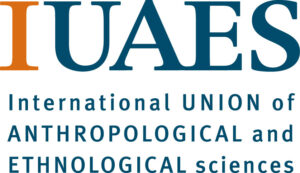 The IUAES is a world organization of social and biological anthropological scientists and institutions working in the fields of anthropology and ethnology, but also of interest to archaeologists and linguistics specialists, among others. Its aim is to enhance exchange and communication among scholars of all regions of the world, in a collective effort to expand human knowledge. In this way it hopes to contribute to a better understanding of human society, and to a sustainable future based on harmony between nature and culture.
The IUAES is a world organization of social and biological anthropological scientists and institutions working in the fields of anthropology and ethnology, but also of interest to archaeologists and linguistics specialists, among others. Its aim is to enhance exchange and communication among scholars of all regions of the world, in a collective effort to expand human knowledge. In this way it hopes to contribute to a better understanding of human society, and to a sustainable future based on harmony between nature and culture.
Web: waunet.org/iuaes
Latin American Association / Asociación Latinoamericana de Antropología - ALA
 According to its statutes, the ALA is a democratic organization, without any political nor religious affiliations. Its primary objective is to congregate professionals with an anthropological interest on Latin American and the Caribbean to promote the exchange of ideas, the debate of paradigms and the defense of common interests in the field.The Latin American Anthropological Association was constituted in April 1990, during the Brazilian Anthropological Association meeting, in Florianopolis. In July 2005, the Association held its First Congress of Latin American Anthropology in Rosario, Argentina.The Association is administered in three-year periods by a Council of Representatives -constituted by as much as two representatives of each country which has ALA members- and an Executive Board –constituted by a President, a General Secretary, a Technical Secretary, a Treasurer and five Vice-Presidents.
According to its statutes, the ALA is a democratic organization, without any political nor religious affiliations. Its primary objective is to congregate professionals with an anthropological interest on Latin American and the Caribbean to promote the exchange of ideas, the debate of paradigms and the defense of common interests in the field.The Latin American Anthropological Association was constituted in April 1990, during the Brazilian Anthropological Association meeting, in Florianopolis. In July 2005, the Association held its First Congress of Latin American Anthropology in Rosario, Argentina.The Association is administered in three-year periods by a Council of Representatives -constituted by as much as two representatives of each country which has ALA members- and an Executive Board –constituted by a President, a General Secretary, a Technical Secretary, a Treasurer and five Vice-Presidents.
Web: www.asociacionlatinoamericanadeantropologia.net
International Society for Ethnology and Folklore / Société Internationale d´Ethnologie et de Folklore - SIEF
 SIEF is an international scholarly organization founded in 1964. The major purpose of our organization is to facilitate cooperation among scholars working within European Ethnology, Folklore Studies and adjoining fields. Membership is open to interested scholars and students. The modest membership fees support our efforts to build stronger networks among individuals and institutions in our fields, to enlarge the scope of our
SIEF is an international scholarly organization founded in 1964. The major purpose of our organization is to facilitate cooperation among scholars working within European Ethnology, Folklore Studies and adjoining fields. Membership is open to interested scholars and students. The modest membership fees support our efforts to build stronger networks among individuals and institutions in our fields, to enlarge the scope of our
Web-based services, and to plan and carry out scholarly meetings. Within the larger and looser framework of SIEF, a number of special interest sections have taken shape over the past decades. They hold their own congresses and workshops, and in some instances publish their own proceedings.
Web: www.siefhome.org
Global Council for Anthropological Linguistics - Glocal
 The GLOCAL, The Global Council for Anthropological Linguistics, housed at SOAS, University of London, is the global non-profit international organization and unit for Linguistic Cultural Anthropology, vastly networking academic universities, bodies, and prominent scholars, worldwide, all with focus on Linguistic Cultural Anthropology. The GLOCAL is the world body bridging together the world of Linguistic Cultural Anthropology by organizing multiple conferences on Linguistic Cultural Anthropology annually, while producing several peer-reviewed academic journals, media, and projects, both in academic research, and throughout larger society.
The GLOCAL, The Global Council for Anthropological Linguistics, housed at SOAS, University of London, is the global non-profit international organization and unit for Linguistic Cultural Anthropology, vastly networking academic universities, bodies, and prominent scholars, worldwide, all with focus on Linguistic Cultural Anthropology. The GLOCAL is the world body bridging together the world of Linguistic Cultural Anthropology by organizing multiple conferences on Linguistic Cultural Anthropology annually, while producing several peer-reviewed academic journals, media, and projects, both in academic research, and throughout larger society.
Web: glocal.soas.ac.uk
Pan African Anthropology Association - PAAA
The PAAA is a professional association whose primary goal is to facilitate the development of anthropological capacity and to promote excellence in the context of Africa’s development. The mission of the association is derived therefore from the tripartite mandate mentioned in the historical background of PAAA.
Wenner-Gren Foundation for Anthropological Research
 The Wenner-Gren Foundation for Anthropological Research, Inc. was founded in 1941. It is a private operating Foundation that is dedicated to the advancement of anthropology throughout the world. Through programs of funding for research projects, conferences, symposia, fellowships, and publication, the Foundation aids basic research in all branches of anthropology and closely related disciplines concerned with human origins, development and variation.
The Wenner-Gren Foundation for Anthropological Research, Inc. was founded in 1941. It is a private operating Foundation that is dedicated to the advancement of anthropology throughout the world. Through programs of funding for research projects, conferences, symposia, fellowships, and publication, the Foundation aids basic research in all branches of anthropology and closely related disciplines concerned with human origins, development and variation.
Web: http://www.wennergren.org/
International Association for Southeast European Anthropology - InASEA
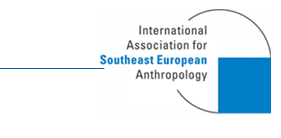 The International Association for Southeast European Anthropology (InASEA) is the successor of the Association of Balkan Anthropology (ABA), founded in 1996. InASEA was established at the conference in Sofia in 2000. The Association members perform research in Southeast European ethnology, cultural and social anthropology, folklore, historical anthropology, and the related disciplines. They come from the region as well as from other parts of the world, and share the conviction that anthropologically informed research is an essential element for understanding the current and past problems of Southeast Europe.
The International Association for Southeast European Anthropology (InASEA) is the successor of the Association of Balkan Anthropology (ABA), founded in 1996. InASEA was established at the conference in Sofia in 2000. The Association members perform research in Southeast European ethnology, cultural and social anthropology, folklore, historical anthropology, and the related disciplines. They come from the region as well as from other parts of the world, and share the conviction that anthropologically informed research is an essential element for understanding the current and past problems of Southeast Europe.
Web: inasea.net
 Argentina Colegio de Graduados en Antropología de la República Argentina - CGA
Argentina Colegio de Graduados en Antropología de la República Argentina - CGA
 The CGA is a professional organization founded by the Constitutive Assembly of July 27, 1972. As a national professional association (legal registration # 351838), it includes an important proportion of anthropologists engaged in practice in Argentina.
The CGA is a professional organization founded by the Constitutive Assembly of July 27, 1972. As a national professional association (legal registration # 351838), it includes an important proportion of anthropologists engaged in practice in Argentina.
Web: cga.org.ar/
 Australia Australian Anthopological Society - AAS
Australia Australian Anthopological Society - AAS
 The AAS was incorporated under New South Wales legislation in 1973. Members of the Society currently include a substantial proportion of the practising anthropologists in Australia, with some other members overseas in, for example, New Zealand, Papua New Guinea and Fiji.
The AAS was incorporated under New South Wales legislation in 1973. Members of the Society currently include a substantial proportion of the practising anthropologists in Australia, with some other members overseas in, for example, New Zealand, Papua New Guinea and Fiji.
Web: www.aas.asn.au
 Brazil Associaçõ Brasileira de Antropologia - ABA
Brazil Associaçõ Brasileira de Antropologia - ABA
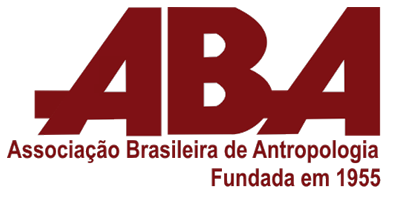 Founded in 1955, the ABA is the oldest scientific organisation existing in Brazil in the field of Social Sciences. In fifty years, the ABA has played an outstanding role in dealing with issues related to public policies regarding education, social action and protection of human rights. Throughout its history, it defended ethnic minorities, discriminated groups and has expressed itself manifestly against social injustice. Its voice has not failed to disturb those who do not respect human rights. Its code of ethics demands respect for populations studied and requires researchers to make their objectives clear to the groups and populations they study.
Founded in 1955, the ABA is the oldest scientific organisation existing in Brazil in the field of Social Sciences. In fifty years, the ABA has played an outstanding role in dealing with issues related to public policies regarding education, social action and protection of human rights. Throughout its history, it defended ethnic minorities, discriminated groups and has expressed itself manifestly against social injustice. Its voice has not failed to disturb those who do not respect human rights. Its code of ethics demands respect for populations studied and requires researchers to make their objectives clear to the groups and populations they study.
Web: www.portal.abant.org.br/
 Canada Canadian Anthropology Society / Société canadienne anthropologie - CASCA
Canada Canadian Anthropology Society / Société canadienne anthropologie - CASCA
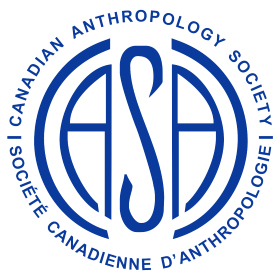 CASCA was founded in February of 1974 at a meeting of 120 ethnologists at Université Laval, with its original name being the Canadian Ethnology Society. The founding members drafted and approved a constitution with a mandate to provide a forum for the exchange of ideas among ethnologists. The society's aims were to encourage formal and informal dissemination of knowledge through an annual conference and publications; promote relations with other academic and professional associations, aboriginal groups, and governments; and publicize ethnological research and activities to further understanding of ethnological practices.
CASCA was founded in February of 1974 at a meeting of 120 ethnologists at Université Laval, with its original name being the Canadian Ethnology Society. The founding members drafted and approved a constitution with a mandate to provide a forum for the exchange of ideas among ethnologists. The society's aims were to encourage formal and informal dissemination of knowledge through an annual conference and publications; promote relations with other academic and professional associations, aboriginal groups, and governments; and publicize ethnological research and activities to further understanding of ethnological practices.
Web: www.cas-sca.ca
 Croatia Croatian Anthropological Association - HAD
Croatia Croatian Anthropological Association - HAD
 The Croatian Anthropological Society (Hrvatsko antropološko društvo - HAD) is a cover organization bringing together scientists and professionals working in the field of anthropology and complementary scientific fields (e.g. biology, genetics, physiology, immunology, morphology, ethnology, archaeology, psychology etc.).
The Society has 157 members.
The Croatian Anthropological Society (Hrvatsko antropološko društvo - HAD) is a cover organization bringing together scientists and professionals working in the field of anthropology and complementary scientific fields (e.g. biology, genetics, physiology, immunology, morphology, ethnology, archaeology, psychology etc.).
The Society has 157 members.
Web: hrvatsko-antropolosko-drustvo.hr/
 Czech Republic Czech Association for Social Anthropology - CASA
Czech Republic Czech Association for Social Anthropology - CASA
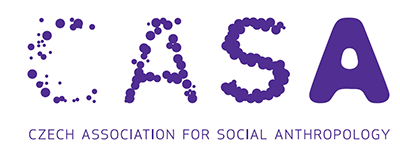 CASA is association of professional academics in social anthropology, graduates in social anthropology (MA level) and supporters from related disciplines. It is part of the academic community of the Czech Republic and belongs to the category of scientific societies.
CASA is association of professional academics in social anthropology, graduates in social anthropology (MA level) and supporters from related disciplines. It is part of the academic community of the Czech Republic and belongs to the category of scientific societies.
The aims of CASA are:
to support the development of scientific research and education in social anthropology;
to represent Czech social anthropology in relation to the government, public and non-governmental organizations and on international anthropological forums;
to popularise the achievements of social anthropology;
to maintain contacts and establish cooperation with similar professional organizations in the Czech Republic and abroad.
To attain its aims, the association organizes specialized conferences, lectures and seminars, prepares and publishes publications, elaborates and presents suggestions concerning the improvement of education and research in social anthropology, and offers the findings of social anthropology for practical implementation.
Web: www.casaonline.cz
 Czech Republic Česká Národopisná Společnost - ČNS
Czech Republic Česká Národopisná Společnost - ČNS
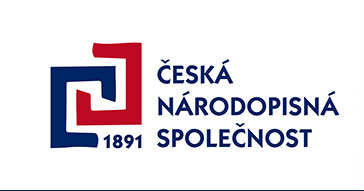 The Czech Ethnological Society (Česká národopisná společnost) is an association of professionals working in the fields of ethnology and cultural anthropology. The history of the Czech Ethnological Society dates back to 1891 and is closely related to the establishment of ethnology as an academic field in the Czech Lands. Today the society has more than two hundred individual members specializing in different aspects of traditional culture and cultural history and twenty collective members which include museums, open-air museums and academic institutions. The Czech Ethnological Society has two special commissions – Commission for Folk Architecture and Commission for Folk Customs and since 2010 it is accredited to act in advisory capacity to the Intergovernmental Committee of the UNESCO Convention for Safeguarding of the Intangible Cultural Heritage. Since 1906 it publishes the Ethnographic journal.
The Czech Ethnological Society (Česká národopisná společnost) is an association of professionals working in the fields of ethnology and cultural anthropology. The history of the Czech Ethnological Society dates back to 1891 and is closely related to the establishment of ethnology as an academic field in the Czech Lands. Today the society has more than two hundred individual members specializing in different aspects of traditional culture and cultural history and twenty collective members which include museums, open-air museums and academic institutions. The Czech Ethnological Society has two special commissions – Commission for Folk Architecture and Commission for Folk Customs and since 2010 it is accredited to act in advisory capacity to the Intergovernmental Committee of the UNESCO Convention for Safeguarding of the Intangible Cultural Heritage. Since 1906 it publishes the Ethnographic journal.
Web: www.narodopisnaspolecnost.cz
 Chile Colegio de Antropólogos de Chile – CAC
Chile Colegio de Antropólogos de Chile – CAC
 Description missing.
Description missing.
Web: colegioantropologosdotcl.wordpress.com
 China The Chinese Anthropological Society – CAS
China The Chinese Anthropological Society – CAS
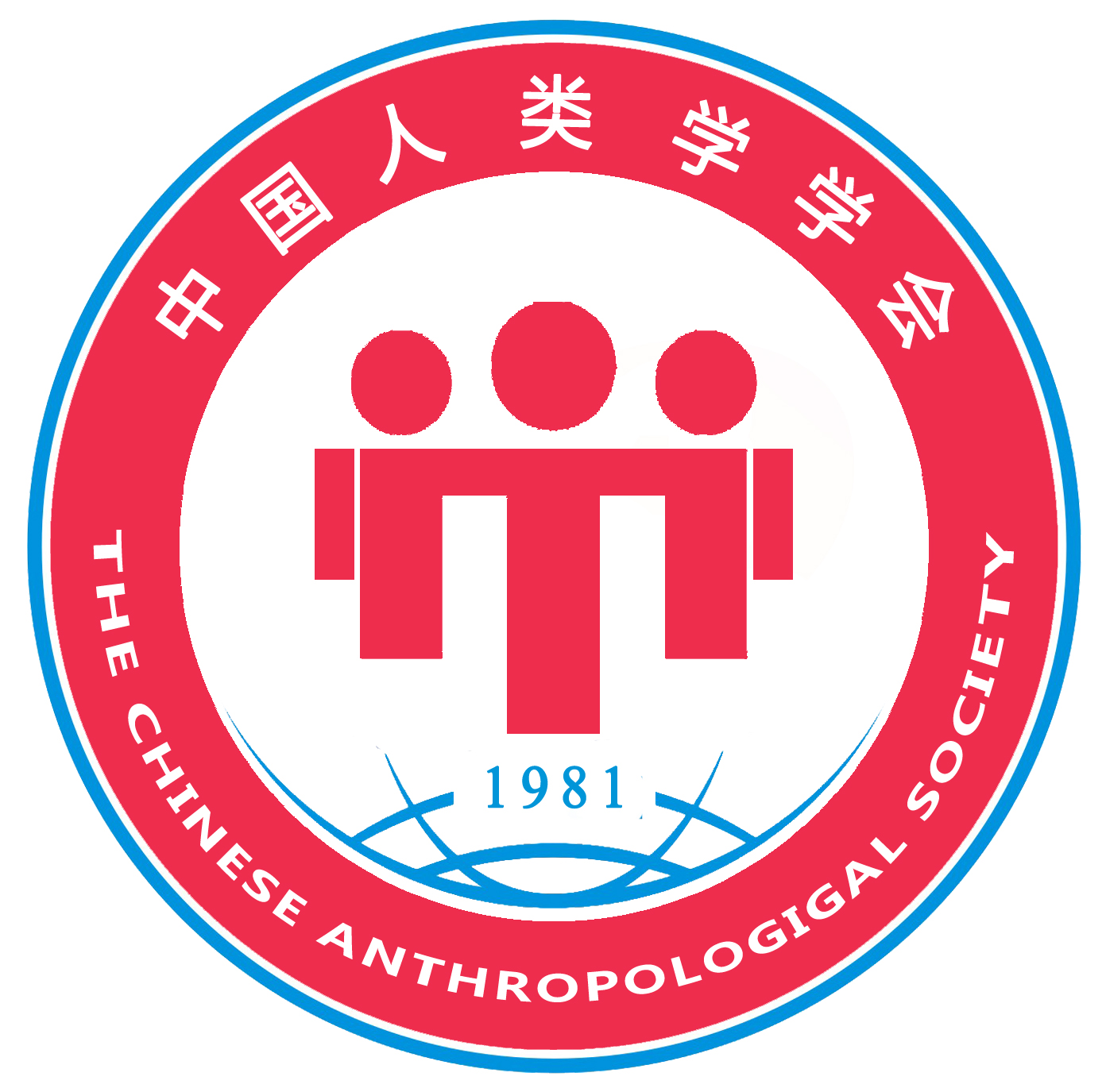 The Chinese Anthropological Society – CAS The Chinese Anthropological Society(CAS)was founded on May 14, 1981. It is one of the first nation-wide academic organizations in China. Its mission is to unite and organize all Chinese anthropologists to promote the prosperity of anthropology in China. It now has 433 members. Its present chair is HAO Si-yuan HAO Shi-yuan. Its main activities of CAS include: 1) actively conduct academic research and organize various forms of academic activities; 2) compile, translate and publish outstanding anthropological research results and promote and popularize anthropological knowledge; 3) maintain close contacts with relevant associations at home and abroad and reinforce academic cross-discipline and international exchanges; 4) establish regular contact with relevant local units or offices and provide advices to policy-makers; 5) compile The Newsletter of Chinese Anthropological Society to report great anthropological research achievements at home and abroad, to provide relevant academic information at home and abroad, and report the opinions and suggestions of the members.
The Chinese Anthropological Society – CAS The Chinese Anthropological Society(CAS)was founded on May 14, 1981. It is one of the first nation-wide academic organizations in China. Its mission is to unite and organize all Chinese anthropologists to promote the prosperity of anthropology in China. It now has 433 members. Its present chair is HAO Si-yuan HAO Shi-yuan. Its main activities of CAS include: 1) actively conduct academic research and organize various forms of academic activities; 2) compile, translate and publish outstanding anthropological research results and promote and popularize anthropological knowledge; 3) maintain close contacts with relevant associations at home and abroad and reinforce academic cross-discipline and international exchanges; 4) establish regular contact with relevant local units or offices and provide advices to policy-makers; 5) compile The Newsletter of Chinese Anthropological Society to report great anthropological research achievements at home and abroad, to provide relevant academic information at home and abroad, and report the opinions and suggestions of the members.
 Finland Finnish Anthropological Society - SAS
Finland Finnish Anthropological Society - SAS
 The Finnish Anthropological Society is a learned society founded in 1975. The Society has approximately 400 members in Finland and abroad. The core function of the Society is to promote high quality research in the fields of anthropology and in disciplines closely related to anthropology. The Society also creates public venues for discussing and disseminating anthropological knowledge and aims at consolidating the identity of anthropologists working in Finland.
The Finnish Anthropological Society is a learned society founded in 1975. The Society has approximately 400 members in Finland and abroad. The core function of the Society is to promote high quality research in the fields of anthropology and in disciplines closely related to anthropology. The Society also creates public venues for discussing and disseminating anthropological knowledge and aims at consolidating the identity of anthropologists working in Finland.
Web: www.antropologinenseura.fi
 France Association Française d’Ethnologie et d’Anthropologie - AFEA
France Association Française d’Ethnologie et d’Anthropologie - AFEA
 Founded in 2009, the AFEA (Association Française d’Ethnologie et d’Anthropologie/ French association for Social Anthropology), is a professional association dedicated to promote the advancement of anthropology in France. The main objectives of AFEA are to unite individual anthropologists and associations working in anthropology, to represent the discipline at the national level, and to provide advice for related public policy developments in France. Our main activities are: running a participatory
Founded in 2009, the AFEA (Association Française d’Ethnologie et d’Anthropologie/ French association for Social Anthropology), is a professional association dedicated to promote the advancement of anthropology in France. The main objectives of AFEA are to unite individual anthropologists and associations working in anthropology, to represent the discipline at the national level, and to provide advice for related public policy developments in France. Our main activities are: running a participatory
Website that gathers information related to anthropology, hosting periodical meetings (conferences, forums, etc.) as exchange platforms for those working in anthropology in France, and promoting initiatives in teaching and research in anthropology.
Web: afea.hypotheses.org
 France Association Française des Anthropologues - AFA
France Association Française des Anthropologues - AFA
 The AFA was founded in May 1979 following a conference on The Present State and Future of Anthropology (April 1977), organized by S. Dreyfus-Gamelon and G. Condominas, at a time when the anthropological community was concerned with both its professionalization and its representation to the outside world. The Association set itself the goal of "promoting the development of anthropology and of relations between anthropologists, informing the general public about anthropology, representing French anthropology on international bodies and making anthropologists aware of their responsibilities".
The AFA was founded in May 1979 following a conference on The Present State and Future of Anthropology (April 1977), organized by S. Dreyfus-Gamelon and G. Condominas, at a time when the anthropological community was concerned with both its professionalization and its representation to the outside world. The Association set itself the goal of "promoting the development of anthropology and of relations between anthropologists, informing the general public about anthropology, representing French anthropology on international bodies and making anthropologists aware of their responsibilities".
Web: www.afa.msh-paris.fr/
 Germany Deutsche Gesellschaft für Sozial- und Kulturanthropologie - DGSKA
Germany Deutsche Gesellschaft für Sozial- und Kulturanthropologie - DGSKA
 The DGSKA congregates social anthropologists as well as people and institutions interested in anthropological issues. It was founded in the 1920s, with even older predecessors.
The DGSKA congregates social anthropologists as well as people and institutions interested in anthropological issues. It was founded in the 1920s, with even older predecessors.
Web: https://www.dgska.de
 Hong Kong Hong Kong Anthropological Society - HKAS
Hong Kong Hong Kong Anthropological Society - HKAS
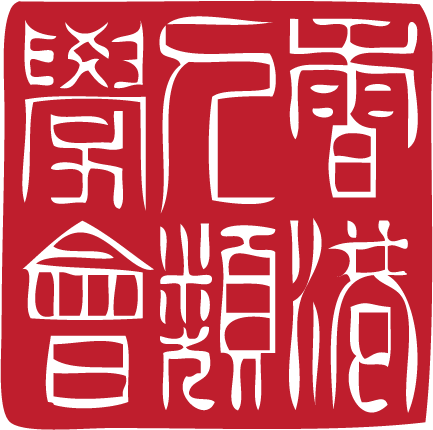 The HKAS was founded in 1978 in response to a growing interest in Hong Kong in the culture and ethnography of the region. It now has some 120 members in Hong Kong, including professional anthropologists and other academics from Hong Kong's eight universities, postgraduate and undergraduate students, and interested laypeople from all walks of life. The Society works in close association with the Hong Kong Museum of History and with the Department of Anthropology at the Chinese University of Hong Kong. The society organizes regular monthly talks by scholars, professionals, and local experts on all aspects of anthropology -- from netizens in China's cyberspace to the struggles of Hong Kong Disneyland, from shamans in Indonesia to Hong Kong identity as Chinese/not Chinese, from the birth of agriculture in China to migrant laborers in Beijing to ecotourism in Malaysia, low-end globalization in Chungking Mansions, and musical genres in the Philippines. These talks are followed by informal dinners at a local restaurant, to which all are invited. The purpose of the Society is to bring anthropology beyond the doors of academe, to a larger public of interested people in Hong Kong and beyond. We seek to bring academics and laypeople together in a common forum, in order to broaden academic anthropology and in order to broaden the understanding of anthropology by people beyond the academy.
The HKAS was founded in 1978 in response to a growing interest in Hong Kong in the culture and ethnography of the region. It now has some 120 members in Hong Kong, including professional anthropologists and other academics from Hong Kong's eight universities, postgraduate and undergraduate students, and interested laypeople from all walks of life. The Society works in close association with the Hong Kong Museum of History and with the Department of Anthropology at the Chinese University of Hong Kong. The society organizes regular monthly talks by scholars, professionals, and local experts on all aspects of anthropology -- from netizens in China's cyberspace to the struggles of Hong Kong Disneyland, from shamans in Indonesia to Hong Kong identity as Chinese/not Chinese, from the birth of agriculture in China to migrant laborers in Beijing to ecotourism in Malaysia, low-end globalization in Chungking Mansions, and musical genres in the Philippines. These talks are followed by informal dinners at a local restaurant, to which all are invited. The purpose of the Society is to bring anthropology beyond the doors of academe, to a larger public of interested people in Hong Kong and beyond. We seek to bring academics and laypeople together in a common forum, in order to broaden academic anthropology and in order to broaden the understanding of anthropology by people beyond the academy.
Web: www.cuhk.edu.hk/ant/hkas/
 India Indian Anthropological Association - IAA
India Indian Anthropological Association - IAA
 The Indian Anthropological Association (IAA) is the body of the professional anthropologists in India seeking to provide a platform to anthropologists and those working on allied disciplines, to promote interest and encourage research in anthropology through the publication of the journal and holding seminars and conferences.The idea to form this association was conceived way back in 1964 at Dalhousie, Himachal Pradesh when All India Summer School was organized by the Department of Anthropology, University of Delhi. The association continued in an informal manner till 1969 when it was formally registered with Department of Anthropology, University of Delhi as its National Headquarters. The Indian Anthropological Association has never looked back in its journey for the pursuit and dissemination of knowledge regarding the diversified conditions of human existence. It has focused on the understanding of complexity and variety that the Indian populations and cultures exhibit. It has been sensitive and responsive to significant conceptual and methodological advances developing from time to time to in different intellectual traditions of the world anthropology. It has also been raising concerns in relation to important social and political issues in India.
The Indian Anthropological Association (IAA) is the body of the professional anthropologists in India seeking to provide a platform to anthropologists and those working on allied disciplines, to promote interest and encourage research in anthropology through the publication of the journal and holding seminars and conferences.The idea to form this association was conceived way back in 1964 at Dalhousie, Himachal Pradesh when All India Summer School was organized by the Department of Anthropology, University of Delhi. The association continued in an informal manner till 1969 when it was formally registered with Department of Anthropology, University of Delhi as its National Headquarters. The Indian Anthropological Association has never looked back in its journey for the pursuit and dissemination of knowledge regarding the diversified conditions of human existence. It has focused on the understanding of complexity and variety that the Indian populations and cultures exhibit. It has been sensitive and responsive to significant conceptual and methodological advances developing from time to time to in different intellectual traditions of the world anthropology. It has also been raising concerns in relation to important social and political issues in India.
Web: www.indiananthro.org
 India Indian Anthropological Society, Calcutta
India Indian Anthropological Society, Calcutta
 The Indian Anthropological Society traces its origin from the Anthropology Club established in 1921 at the initiative of the then Vice-chancellor of the University of Calcutta, Sir Ashutosh Mukhopadhyay, who acted as its founding President. The major objectives of the Club were to organize periodic academic discourses on anthropology and related disciplines as well as to examine the role and relevance of anthropology in the emerging situational contexts of India. The Club also took active interest in promoting and propagating inter-culturally tolerant outlook among fellow citizens.
The Indian Anthropological Society traces its origin from the Anthropology Club established in 1921 at the initiative of the then Vice-chancellor of the University of Calcutta, Sir Ashutosh Mukhopadhyay, who acted as its founding President. The major objectives of the Club were to organize periodic academic discourses on anthropology and related disciplines as well as to examine the role and relevance of anthropology in the emerging situational contexts of India. The Club also took active interest in promoting and propagating inter-culturally tolerant outlook among fellow citizens.
Web: indiananthropologicalsociety.org
 Israel Israeli Anthropological Association - IAA
Israel Israeli Anthropological Association - IAA
 The Israeli Anthropological Association (IAA) was founded in 1973. Starting as a four-field association, its membership today is dominated by socio-cultural anthropologists. Its over 100 members include university staff, college staff, and graduate students (about 1/3 of the membership each). The main activity of the IAA is a two-day annual meeting, with distinguished keynote speakers from abroad, lively discussions , book celebration and alternate PhD and MA theses competitions.
The Israeli Anthropological Association (IAA) was founded in 1973. Starting as a four-field association, its membership today is dominated by socio-cultural anthropologists. Its over 100 members include university staff, college staff, and graduate students (about 1/3 of the membership each). The main activity of the IAA is a two-day annual meeting, with distinguished keynote speakers from abroad, lively discussions , book celebration and alternate PhD and MA theses competitions.
Web: www.anthropology.org.il
 Italy Società Italiana di Antropologia Culturale - SIAC
Italy Società Italiana di Antropologia Culturale - SIAC
 SIAC (Italian Society of Cultural Anthropology) was established in 2017 after the merger of two national associations: ANUAC (a WCAA member since 2014) and AISEA. SIAC brings together Italian anthropologists with the aim of promoting research and fostering the development of the scientific community in the field of Demo-Ethno-Anthropology, which is the official denomination adopted in Italy to represent three originally distinct scholarly traditions (folklore or ‘demologia', ethnology, and cultural anthropology). Among its multiple scientific activities fostering anthropological research and education, SIAC promotes initiatives concerning the popularization, the current status and the future of anthropology within and beyond the academy. SIAC publishes two international peer-reviewed, open access journals: Anuac and EtnoAntropologia.
SIAC (Italian Society of Cultural Anthropology) was established in 2017 after the merger of two national associations: ANUAC (a WCAA member since 2014) and AISEA. SIAC brings together Italian anthropologists with the aim of promoting research and fostering the development of the scientific community in the field of Demo-Ethno-Anthropology, which is the official denomination adopted in Italy to represent three originally distinct scholarly traditions (folklore or ‘demologia', ethnology, and cultural anthropology). Among its multiple scientific activities fostering anthropological research and education, SIAC promotes initiatives concerning the popularization, the current status and the future of anthropology within and beyond the academy. SIAC publishes two international peer-reviewed, open access journals: Anuac and EtnoAntropologia.
Web: www.siacantropologia.it
 Italy Istituto Italiano di Antropologia - ISItA
Italy Istituto Italiano di Antropologia - ISItA
 The ISItA was founded in 1893 by Giuseppe Sergi. The objective of the ISItA is to promote an interdisciplinary approach to anthropology which encompasses a synthesis of the biological, social and cultural aspects of the evolution of Man. The activities of the ISItA include the organisation of scientific meetings regarding matters of general interest and the publication of the Journal of Anthropological Sciences (JASs).The JASs publishes research articles, notes and reviews concerning all aspects of evolutionary anthropology (primatology, human paleontology, prehistory, biology and genetics of extinct and extant populations), with particular attention towards interdisciplinary approaches.
The ISItA was founded in 1893 by Giuseppe Sergi. The objective of the ISItA is to promote an interdisciplinary approach to anthropology which encompasses a synthesis of the biological, social and cultural aspects of the evolution of Man. The activities of the ISItA include the organisation of scientific meetings regarding matters of general interest and the publication of the Journal of Anthropological Sciences (JASs).The JASs publishes research articles, notes and reviews concerning all aspects of evolutionary anthropology (primatology, human paleontology, prehistory, biology and genetics of extinct and extant populations), with particular attention towards interdisciplinary approaches.
Web: www.isita-org
 Japan Japanese Society of Cultural Anthropology - JASCA
Japan Japanese Society of Cultural Anthropology - JASCA
 With a membership of approximately 2,100 scholars and students, the JASCA/Nihon Bunkajinrui Gakkai is one of the largest anthropological organizations in the world. The JASCA's main purpose is to promote research on human culture(s) in cultural anthropology, social anthropology and ethnology.
With a membership of approximately 2,100 scholars and students, the JASCA/Nihon Bunkajinrui Gakkai is one of the largest anthropological organizations in the world. The JASCA's main purpose is to promote research on human culture(s) in cultural anthropology, social anthropology and ethnology.
Web: www.jasca.org
 Latvia Latvijas Antropologu Biedriba - LAB
Latvia Latvijas Antropologu Biedriba - LAB
 LAB was founded in 1999 by Latvian anthropologists who had gained education in the West after the breakdown of the Soviet Union. The association aspires to develop and strengthen social/ cultural anthropology as an academic discipline in Latvia, engaging at the same time with other disciplines that study humankind from different perspectives. LAB also tries to enhance scholarly and public debate on important socio-political issues in Latvia. Members of the association include anthropologists currently involved in teaching and research at local and foreign universities as well as representatives of other academic disciplines with interest in anthropology. LAB also has a student section.
LAB was founded in 1999 by Latvian anthropologists who had gained education in the West after the breakdown of the Soviet Union. The association aspires to develop and strengthen social/ cultural anthropology as an academic discipline in Latvia, engaging at the same time with other disciplines that study humankind from different perspectives. LAB also tries to enhance scholarly and public debate on important socio-political issues in Latvia. Members of the association include anthropologists currently involved in teaching and research at local and foreign universities as well as representatives of other academic disciplines with interest in anthropology. LAB also has a student section.
Web: antropologubiedriba.wikidot.com
 Mexico Colegio de Etnólogos y Antropólogos Sociales - CEAS
Mexico Colegio de Etnólogos y Antropólogos Sociales - CEAS
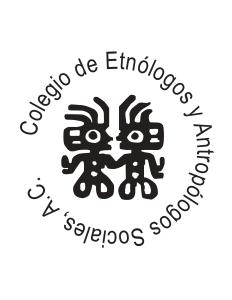 The CEAS is a professional organization created by the Constitutive Assembly of July 25, 1974. Legally recognized as a professional college by the General Profession Direction of the Public Education Secretary (Mexico) since 1976, the College has an official place in Mexico City, judicial personality, its own patrimony, and indefinite duration.
The CEAS is a professional organization created by the Constitutive Assembly of July 25, 1974. Legally recognized as a professional college by the General Profession Direction of the Public Education Secretary (Mexico) since 1976, the College has an official place in Mexico City, judicial personality, its own patrimony, and indefinite duration.
Web: ceasmexico.wordpress.com
 Aotearoa/New Zealand Association of Social Anthropologists of Aotearoa/New Zealand
Aotearoa/New Zealand Association of Social Anthropologists of Aotearoa/New Zealand
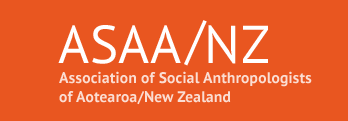 The Association of Social Anthropologists of Aotearoa/New Zealand (ASAA/NZ) is a relatively small association, established in 1975. It now has some 100 members. Its main activity is an annual conference, usually in December. It also maintains an online discussion board. Anthropology in Aotearoa/NZ began in the encounter between Maori and colonial intellectuals who sought to understand and engage with Maori society. This was later infused with the British tradition of social anthropology, which attracted New Zealanders such as Raymond Firth to study in Britain and later a student of Malinowski, Ralph Piddington, to move from Australia to New Zealand, where he founded the first department of anthropology in Auckland in 1950. There are now six anthropology programmes at universities across the country. Anthropologists also work in other programmes, government departments, and private practice.
The Association of Social Anthropologists of Aotearoa/New Zealand (ASAA/NZ) is a relatively small association, established in 1975. It now has some 100 members. Its main activity is an annual conference, usually in December. It also maintains an online discussion board. Anthropology in Aotearoa/NZ began in the encounter between Maori and colonial intellectuals who sought to understand and engage with Maori society. This was later infused with the British tradition of social anthropology, which attracted New Zealanders such as Raymond Firth to study in Britain and later a student of Malinowski, Ralph Piddington, to move from Australia to New Zealand, where he founded the first department of anthropology in Auckland in 1950. There are now six anthropology programmes at universities across the country. Anthropologists also work in other programmes, government departments, and private practice.
Web: www.asaanz.org
 Norway Norsk Antropologisk Forening - NAF
Norway Norsk Antropologisk Forening - NAF
 Norsk Antropologisk Forening (NAF) was founded in 1979 and is now a comprehensive organization with members from all the main anthropological institutes in Norway, as well as anthropologists outside academia. As such, NAF offers a common ground of educational and social interaction for Norwegian anthropologists. The association arranges an annual conference with distinguished keynote speakers, panel discussions and the announcement of awards for MA and PhD theses competitions, and is furthermore involved in publishing of the Norwegian Anthropological Journal. Through this and other activities NAF aims at contributing to the prospering of collaboration among anthropologistsin Norway (as well as in the Scandinavian region).
Norsk Antropologisk Forening (NAF) was founded in 1979 and is now a comprehensive organization with members from all the main anthropological institutes in Norway, as well as anthropologists outside academia. As such, NAF offers a common ground of educational and social interaction for Norwegian anthropologists. The association arranges an annual conference with distinguished keynote speakers, panel discussions and the announcement of awards for MA and PhD theses competitions, and is furthermore involved in publishing of the Norwegian Anthropological Journal. Through this and other activities NAF aims at contributing to the prospering of collaboration among anthropologistsin Norway (as well as in the Scandinavian region).
Web: antropologi.org
 Palestine Insaniyyat - Society of Palestinian Anthropologists
Palestine Insaniyyat - Society of Palestinian Anthropologists
 Insaniyyat, The Society of Palestinian Anthropologists, was founded in 2015, in order to promote anthropological inquiry in and on Palestine. It is the first academic association that brings the globally dispersed community of Palestinian Anthropologists and Anthropologists of Palestine together, under one organizational umbrella. Our aims include: promoting the academic teaching of Anthropology within Palestinian universities; introducing Anthropology to diverse public audiences; and encouraging ethnographic research and scholarly exchange among Palestinians and on Palestine. A main activity is holding a biannual academic conference. Other activities include: developing curriculum in Arabic on Anthropology; undertaking community-based activities to promote Anthropology as a field of knowledge; holding seminars; and outreaching internationally to establish academic partnerships.
Insaniyyat, The Society of Palestinian Anthropologists, was founded in 2015, in order to promote anthropological inquiry in and on Palestine. It is the first academic association that brings the globally dispersed community of Palestinian Anthropologists and Anthropologists of Palestine together, under one organizational umbrella. Our aims include: promoting the academic teaching of Anthropology within Palestinian universities; introducing Anthropology to diverse public audiences; and encouraging ethnographic research and scholarly exchange among Palestinians and on Palestine. A main activity is holding a biannual academic conference. Other activities include: developing curriculum in Arabic on Anthropology; undertaking community-based activities to promote Anthropology as a field of knowledge; holding seminars; and outreaching internationally to establish academic partnerships.
Web: insaniyyat.org
 Norway Nordic Anthropological Film Association - NAFA
Norway Nordic Anthropological Film Association - NAFA
 Nordic Anthropological Film Association (NAFA) is an organization for cooperation within the field of visual anthropology and has been active since the mid-1970s. One of NAFA's most important tasks has been to build up an anthropological film collection for use in teaching and research. NAFA also arranges an annual international film festival and conference. Our newsletter NAFA-Network, incorporating the Commission of Visual Anthropology (CVA) Circular, has hundreds of subscriptions from all over the world.
Nordic Anthropological Film Association (NAFA) is an organization for cooperation within the field of visual anthropology and has been active since the mid-1970s. One of NAFA's most important tasks has been to build up an anthropological film collection for use in teaching and research. NAFA also arranges an annual international film festival and conference. Our newsletter NAFA-Network, incorporating the Commission of Visual Anthropology (CVA) Circular, has hundreds of subscriptions from all over the world.
Web: nafa.uib.no
 Philippines Anthropological Association of the Philippines / Ugnayang Pang-Aghamtao, Inc - UGAT
Philippines Anthropological Association of the Philippines / Ugnayang Pang-Aghamtao, Inc - UGAT
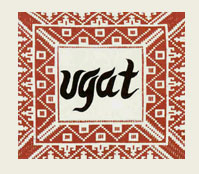 Founded, in 1977, UGAT aims to: promote, develop, and disseminate anthropological knowledge; deepen the knowledge, understanding, and participation of and among different ethnolinguistic groups in working towards an integrated national consciousness and development; forge linkages among anthropologists and others doing related work within and outside the country; and uphold professional ethics.
Founded, in 1977, UGAT aims to: promote, develop, and disseminate anthropological knowledge; deepen the knowledge, understanding, and participation of and among different ethnolinguistic groups in working towards an integrated national consciousness and development; forge linkages among anthropologists and others doing related work within and outside the country; and uphold professional ethics.
Web: ugat-aap.blogspot.com
UGAT's journal provides a forum for the 'scholarship and practice of anthropology' in the Philippines, while annual conferences provide opportunities for members and related practitioners to participate in the critical examination of evidence-based theoretical and applied research; and hence UGAT produces and disseminates knowledge to its diverse publics (e.g. academe, community-based organizations, state and non-state agencies).
 Poland Polskie Towarszystwo Ludoznawcze / Polish Ethnological Society - PTL
Poland Polskie Towarszystwo Ludoznawcze / Polish Ethnological Society - PTL
 The PTL was established in 1895. It is a nationwide organization of anthropologists, ethnologists and folklorists from and outside academia, with regional branches in major regions of the country, one of the largest in Europe. For decades, PES has offered a platform for intellectual and social interaction for Polish anthropologists, often in collaboration with experts in the region. The Society’s aim is to promote anthropological knowledge through research and educational activities. Since 1895 it publishes its own journal Lud, and arranges yearly conferences open to all its members and other quests invited. The Executive Board, headed by the President, is elected every four years and consists also of vice-presidents, treasurer, secretary and members.
The PTL was established in 1895. It is a nationwide organization of anthropologists, ethnologists and folklorists from and outside academia, with regional branches in major regions of the country, one of the largest in Europe. For decades, PES has offered a platform for intellectual and social interaction for Polish anthropologists, often in collaboration with experts in the region. The Society’s aim is to promote anthropological knowledge through research and educational activities. Since 1895 it publishes its own journal Lud, and arranges yearly conferences open to all its members and other quests invited. The Executive Board, headed by the President, is elected every four years and consists also of vice-presidents, treasurer, secretary and members.
Web: ptl.info.pl/aktualnosci/
 Portugal Associaçãõ Portuguesa de Antropologia - APA
Portugal Associaçãõ Portuguesa de Antropologia - APA
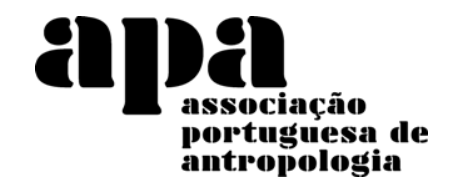 The APA , founded in 1989, is the representative association of Portuguese anthropologists. In 2005, it has some 515 associates. APA is economically independent, being supported by its associate’s fees and is formally constituted as an association under Portuguese law. Its organs are elected by the associates for a three-year period. APA is permanently based at the Institute of Social Sciences of the University of Lisbon (a research institution with a postgraduate program, which includes a section specializing in anthropology) through an agreement of mutual convenience.
The APA , founded in 1989, is the representative association of Portuguese anthropologists. In 2005, it has some 515 associates. APA is economically independent, being supported by its associate’s fees and is formally constituted as an association under Portuguese law. Its organs are elected by the associates for a three-year period. APA is permanently based at the Institute of Social Sciences of the University of Lisbon (a research institution with a postgraduate program, which includes a section specializing in anthropology) through an agreement of mutual convenience.
Web: www.apantropologia.org/apa/
 Russia Association of Anthropologists and Ethnologists of Russia) AAER
Russia Association of Anthropologists and Ethnologists of Russia) AAER
 Association of Anthropologists and Ethnologists of Russia (AAER) was founded in 1991. The main purpose of the Association - to unite the Russian experts in the field of ethnology and anthropology. The main objectives of the Association: - promote research in the field of ethnography, folklore, social and cultural anthropology and modern ethno-national processes in Russia and abroad; - implement a policy of peace and friendship, mutual understanding, cooperation between the peoples of Russia and other countries, the fight against racial, ethnic, religious and any other form of intolerance, discrimination and exclusion; - promote knowledge of the peoples and countries of the world and achievements in ethnographic and anthropological science in Russia and worldwide.
Association of Anthropologists and Ethnologists of Russia (AAER) was founded in 1991. The main purpose of the Association - to unite the Russian experts in the field of ethnology and anthropology. The main objectives of the Association: - promote research in the field of ethnography, folklore, social and cultural anthropology and modern ethno-national processes in Russia and abroad; - implement a policy of peace and friendship, mutual understanding, cooperation between the peoples of Russia and other countries, the fight against racial, ethnic, religious and any other form of intolerance, discrimination and exclusion; - promote knowledge of the peoples and countries of the world and achievements in ethnographic and anthropological science in Russia and worldwide.
In accordance with the purpose and objectives of the movement, AAER conducts a regular biennial Congresses of anthropologists and ethnologists; since 1991, 10 congresses have occurred.
AAER has the status of the All-Russian non-governmental organization. It includes 48 regional offices in various regions of the Russian Federation. To join AAER, you need submit an application to the head-office of Association. To contact AAER please write at congress(AT)iea.ras.ru, aaer2015(AT)mail.ru or call +74959548953
Web: iea-ras.ru/index.php?go=Ethno
 Serbia Serbian Ethnological and Anthropological Society) SEAS
Serbia Serbian Ethnological and Anthropological Society) SEAS
 Serbian Ethnological and Anthropological Society (SEAS) was founded in 1977. It currently has around 100 active members and is the only professional ethnological and anthropological association currently operating in Serbia. Its general mission comprises: research, safeguarding and promotion of cultural heritage, tangible and intangible; continuous education within areas of ethnology, social and cultural anthropology, ethnography and folklore; management and support of ethnological, anthropological and related professional activities in Serbia; coordination and promotion of inter-institutional and interdisciplinary research and public activity; conference and seminar organization and support, and promotion of findings and results of ethnological, anthropological and allied research projects and activities. The state administration regularly relies on SEAS research and professional consultation in its decision-making and policy design as members of the Society are actively involved in UNESCO-related projects. The Society publishes its journal “Papers in Ethnology and Anthropology” twice a year. SEAS conferences are held biannually and are regional in their scope.
Serbian Ethnological and Anthropological Society (SEAS) was founded in 1977. It currently has around 100 active members and is the only professional ethnological and anthropological association currently operating in Serbia. Its general mission comprises: research, safeguarding and promotion of cultural heritage, tangible and intangible; continuous education within areas of ethnology, social and cultural anthropology, ethnography and folklore; management and support of ethnological, anthropological and related professional activities in Serbia; coordination and promotion of inter-institutional and interdisciplinary research and public activity; conference and seminar organization and support, and promotion of findings and results of ethnological, anthropological and allied research projects and activities. The state administration regularly relies on SEAS research and professional consultation in its decision-making and policy design as members of the Society are actively involved in UNESCO-related projects. The Society publishes its journal “Papers in Ethnology and Anthropology” twice a year. SEAS conferences are held biannually and are regional in their scope.
Web: .eads.org.rs
 The Korean Society for Cultural Anthropology - KOSCA
The Korean Society for Cultural Anthropology - KOSCA
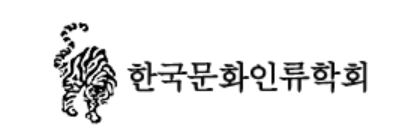 The KOSCA is a professional association for the promotion of research and academic dialogue in cultural anthropology, and was founded in November 1958. As of 2013, the Society has 361 members: 220 professional members who are holding doctoral degrees, including 110 full-time faculty members in higher education. The Society’s officers consist of President, 2 Vice-presidents, 7 Board Officers, and 7 Overseas Board Members. The official journal was started in June 1968. The journal was published annually in the beginning, and was later expanded and published twice a year in 1996. After 2010, the journal has been published three times a year with a circulation of 350 copies.
The KOSCA is a professional association for the promotion of research and academic dialogue in cultural anthropology, and was founded in November 1958. As of 2013, the Society has 361 members: 220 professional members who are holding doctoral degrees, including 110 full-time faculty members in higher education. The Society’s officers consist of President, 2 Vice-presidents, 7 Board Officers, and 7 Overseas Board Members. The official journal was started in June 1968. The journal was published annually in the beginning, and was later expanded and published twice a year in 1996. After 2010, the journal has been published three times a year with a circulation of 350 copies.
Web: koanth.org/
 Spain (Catalania) Institut Catalá d'Antropologia - ICA
Spain (Catalania) Institut Catalá d'Antropologia - ICA
 Since its creation in 1978, the main objective of the Institut Català d’Antropologia, has been to work to disseminate the knowledge and practice of the anthropological discipline and to create a space for discussion, research and scientific deepening of the society and culture in Catalonia.The institution was born from the concern of a group of anthropologists to open new perspectives and forms of work. It currently has about 400 members, various working groups and publishes an Open Access scientific journal QuAderns.
Since its creation in 1978, the main objective of the Institut Català d’Antropologia, has been to work to disseminate the knowledge and practice of the anthropological discipline and to create a space for discussion, research and scientific deepening of the society and culture in Catalonia.The institution was born from the concern of a group of anthropologists to open new perspectives and forms of work. It currently has about 400 members, various working groups and publishes an Open Access scientific journal QuAderns.
Web: https://www.antropologia.cat/
 Spain Instituto Madrileño de Antropología – IMA
Spain Instituto Madrileño de Antropología – IMA
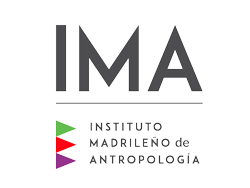 The Madrid Institute of Anthropology (IMA) was founded in 2009 to promote the furtherance and public understanding of anthropology, principally in the Autonomous Community of Madrid. To that end, it encourages research in anthropology as a scientific discipline and the spread of research results in anthropology, the study of the contributions of anthropology to the analysis of social problems, as well as favouring intercultural understanding, the professionalization of the career of anthropologist with the active provision of services to anthropologists and students of anthropology, provides a space for dialogue, interchange, collaboration and communication for anthropologists and all those interested in anthropology and research on and protection of social and cultural heritage in society, as well as encouraging collaboration with the public administration, social agents and groups, cultural associations, scientific societies, foundations, teaching and research institutions, including membership in federations or unions of associations of anthropology, whether at a regional, national or international level.
The Madrid Institute of Anthropology (IMA) was founded in 2009 to promote the furtherance and public understanding of anthropology, principally in the Autonomous Community of Madrid. To that end, it encourages research in anthropology as a scientific discipline and the spread of research results in anthropology, the study of the contributions of anthropology to the analysis of social problems, as well as favouring intercultural understanding, the professionalization of the career of anthropologist with the active provision of services to anthropologists and students of anthropology, provides a space for dialogue, interchange, collaboration and communication for anthropologists and all those interested in anthropology and research on and protection of social and cultural heritage in society, as well as encouraging collaboration with the public administration, social agents and groups, cultural associations, scientific societies, foundations, teaching and research institutions, including membership in federations or unions of associations of anthropology, whether at a regional, national or international level.
Web: https://ima.org.es/
 Spain Asociación de Antropología de Castilla y León - AAC-LMK
Spain Asociación de Antropología de Castilla y León - AAC-LMK
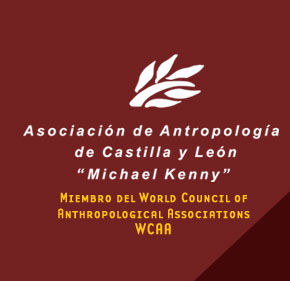 The AAC-LMK was founded in 1989 to promote the discipline of socio-cultural anthropology in Castile and Leon by bringing together anthropologists working in or on the region. The AAC-LMK, which has been a member of the Federation of Anthropological Associations of the Spanish State [FAAEE] since 1993, has been active in the support of anthropological investigation of the area, as well as the spread of the results of such research at local, national and international levels, through the publication, and when necessary, the translation, of the most significant work done on the anthropology of Castile and Leon. The AAC-LMK has also been active in the organising of seminars and of international scientific conferences and the publication of the results of such conferences, as well as in the carrying out of studies in applied anthropology at the request of public and private institutions and in collaboration with professionals of other disciplines.
The AAC-LMK was founded in 1989 to promote the discipline of socio-cultural anthropology in Castile and Leon by bringing together anthropologists working in or on the region. The AAC-LMK, which has been a member of the Federation of Anthropological Associations of the Spanish State [FAAEE] since 1993, has been active in the support of anthropological investigation of the area, as well as the spread of the results of such research at local, national and international levels, through the publication, and when necessary, the translation, of the most significant work done on the anthropology of Castile and Leon. The AAC-LMK has also been active in the organising of seminars and of international scientific conferences and the publication of the results of such conferences, as well as in the carrying out of studies in applied anthropology at the request of public and private institutions and in collaboration with professionals of other disciplines.
Web: antropologiacastillayleon.org/
 Sweden Anthropological Association of Sweden - SANT
Sweden Anthropological Association of Sweden - SANT
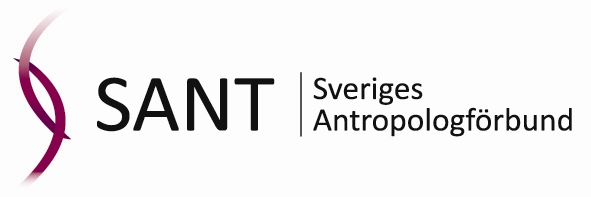 The Anthropological Association of Sweden, SANT, was established in 1991. The main activities of SANT are the annual conferences, organized in different university locations across Sweden. SANT has about 100 paying members. The mission of SANT is to serve as a forum for anthropology in Sweden, and thus to promote the development of scholarship and teaching in anthropology and its applied areas, anthropological knowledge and expertise in various contexts, to protect the professional interests of anthropologists, and to inform about anthropology, and actively work for an increased understanding of anthropology´s social and cultural scholarship at universities, governmental authorities and among the general public.
The Anthropological Association of Sweden, SANT, was established in 1991. The main activities of SANT are the annual conferences, organized in different university locations across Sweden. SANT has about 100 paying members. The mission of SANT is to serve as a forum for anthropology in Sweden, and thus to promote the development of scholarship and teaching in anthropology and its applied areas, anthropological knowledge and expertise in various contexts, to protect the professional interests of anthropologists, and to inform about anthropology, and actively work for an increased understanding of anthropology´s social and cultural scholarship at universities, governmental authorities and among the general public.
Web: sverigesantropologforbund.org
 Taiwan Taiwan Society for Anthropology and Ethnology - TSAE
Taiwan Taiwan Society for Anthropology and Ethnology - TSAE
 Taiwan Society for Anthropology and Ethnology (TSAE) is the professional organization representing all anthropologists and ethnologists in Taiwan. It has been formally registered with the Ministry of Interior Affairs as a non-profit organization since 2000. Currently TSAE has 170 due-paying members, plus 16 organization members. TSAE has its regular annual meeting in early October with formal business meetings, panels on special topics, paper presentations, and poster sessions. The only exception was in 2009 when TSAE also sponsored the Society of East Asian Anthropologists (SEAA, a branch of AAA) to have the joint meeting in Taipei that drew over 400 participants. TSAE also publishes Taiwan Journal of Anthropology (biannually) and two issues of newsletter AnthroVision each year.
Taiwan Society for Anthropology and Ethnology (TSAE) is the professional organization representing all anthropologists and ethnologists in Taiwan. It has been formally registered with the Ministry of Interior Affairs as a non-profit organization since 2000. Currently TSAE has 170 due-paying members, plus 16 organization members. TSAE has its regular annual meeting in early October with formal business meetings, panels on special topics, paper presentations, and poster sessions. The only exception was in 2009 when TSAE also sponsored the Society of East Asian Anthropologists (SEAA, a branch of AAA) to have the joint meeting in Taipei that drew over 400 participants. TSAE also publishes Taiwan Journal of Anthropology (biannually) and two issues of newsletter AnthroVision each year.
Web: taiwananthro.org.tw/
 Tunisia Tunisian Association of Anthropology / L’Association Tunisienne d’Anthropologie - TAA
Tunisia Tunisian Association of Anthropology / L’Association Tunisienne d’Anthropologie - TAA
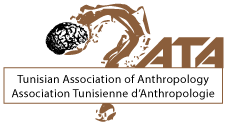 The Tunisian Association of Anthropology is a national scientific association founded in 2001. It is the first organization of individuals interested in Anthropology founded in Tunisia. It is intended to publicize and to promote the anthropological sciences by organizing scientific and cultural activities as seminars and conferences and by encouraging research in the different anthropological specialties. Although national it is open to the world: It has organized international scientific congresses and has founded in 2008 its official journal “International Journal of Modern Anthropology”.
The Tunisian Association of Anthropology is a national scientific association founded in 2001. It is the first organization of individuals interested in Anthropology founded in Tunisia. It is intended to publicize and to promote the anthropological sciences by organizing scientific and cultural activities as seminars and conferences and by encouraging research in the different anthropological specialties. Although national it is open to the world: It has organized international scientific congresses and has founded in 2008 its official journal “International Journal of Modern Anthropology”.
Web: http://www.ata.org.tn/
 UK Association of Social Anthropologists of the UK - ASA
UK Association of Social Anthropologists of the UK - ASA
 The ASA was founded in 1946 to promote the study and teaching of social anthropology, to hold periodical meetings, to present the interests of social anthropology and to maintain its professional status, to assist in any way possible in planning research, to collate, and if possible, publish information on social anthropology, and a register of social anthropologists.
The ASA was founded in 1946 to promote the study and teaching of social anthropology, to hold periodical meetings, to present the interests of social anthropology and to maintain its professional status, to assist in any way possible in planning research, to collate, and if possible, publish information on social anthropology, and a register of social anthropologists.
Web: theasa.org
 UK Royal Anthropological Institute - RAI
UK Royal Anthropological Institute - RAI
 The RAI of Great Britain and Ireland is a scholarly association dedicated to anthropology in all its many fields and applications.
The RAI of Great Britain and Ireland is a scholarly association dedicated to anthropology in all its many fields and applications.
Web: https://therai.org.uk/
 USA American Anthropological Association – AAA
USA American Anthropological Association – AAA
 The American Anthropological Association is the world’s largest association for professional anthropologists, with nearly 10,000 members. Based in Washington, DC, the Association was founded in 1902, and covers all fields of anthropology. While 75 percent of AAA's members are employed in higher education or are students of anthropology, about 25 percent work in the public, private, and non-governmental sectors, beyond the academy. The Association is organized into 40 sections, each reflecting a specialized domain of knowledge. The AAA publishes a portfolio of 22 journals, offers career planning and professional development services, supports college and university departments, awards numerous prizes and fellowships, sponsors a paid summer internship program, and stages numerous research conferences. The Association also has two public education initiatives that highlighting the contributions made by anthropological research to important and enduring topics such as race and migration.
The American Anthropological Association is the world’s largest association for professional anthropologists, with nearly 10,000 members. Based in Washington, DC, the Association was founded in 1902, and covers all fields of anthropology. While 75 percent of AAA's members are employed in higher education or are students of anthropology, about 25 percent work in the public, private, and non-governmental sectors, beyond the academy. The Association is organized into 40 sections, each reflecting a specialized domain of knowledge. The AAA publishes a portfolio of 22 journals, offers career planning and professional development services, supports college and university departments, awards numerous prizes and fellowships, sponsors a paid summer internship program, and stages numerous research conferences. The Association also has two public education initiatives that highlighting the contributions made by anthropological research to important and enduring topics such as race and migration.
Web: https://www.americananthro.org/
 USA Society for Applied Anthropology – SfAA
USA Society for Applied Anthropology – SfAA
 The Society for Applied Anthropology (SfAA) was founded in 1941 to promote the investigation of the principles of human behavior and the application of these principles to contemporary issues and problems. The Society sponsors two journals (Human Organization and Practicing Anthropology) as well as a Monograph Series and occasional special publications. The Society has become the preeminent international organization in the field.
The Society is unique among professional associations. Its membership of over 2,000 represents the interests of professionals in a wide range of work settings -- academia, business, law, health and medicine, public and government. Members come from a variety of disciplines -- anthropology, sociology, economics, business, planning, medicine, nursing, law, and other related social/behavioral sciences. The unifying factor is a commitment to the mission of our association - professionals from a variety of backgrounds who are making an impact on the quality of life in the world today.
The Society for Applied Anthropology (SfAA) was founded in 1941 to promote the investigation of the principles of human behavior and the application of these principles to contemporary issues and problems. The Society sponsors two journals (Human Organization and Practicing Anthropology) as well as a Monograph Series and occasional special publications. The Society has become the preeminent international organization in the field.
The Society is unique among professional associations. Its membership of over 2,000 represents the interests of professionals in a wide range of work settings -- academia, business, law, health and medicine, public and government. Members come from a variety of disciplines -- anthropology, sociology, economics, business, planning, medicine, nursing, law, and other related social/behavioral sciences. The unifying factor is a commitment to the mission of our association - professionals from a variety of backgrounds who are making an impact on the quality of life in the world today.
Web: https://www.appliedanthro.org/annual-meeting
 Uruguay Uruguayan Association of Social and Cultural Anthropology – AUAS
Uruguay Uruguayan Association of Social and Cultural Anthropology – AUAS
 The Uruguayan Association of Social and Cultural Anthropology (AUAS) was founded in 2005. There was no preceding organization and it came to fill an important gap in the consolidation of anthropology as a field of research and employment beyond the academy. The association also provided a much-needed venue for the integration of the different generations of anthropologists; some of who were precursors from a time in which dedication to the discipline was a rarity. The association has 118 members.
The majority of practicing social anthropologists in Uruguay are members of the association. The association publishes the journal TRAMA: Revista de Cultura y Patrimonio, since 2010, which prioritizes publication of articles that refer to culture and heritage in Uruguay.
The association's Code of Ethics was sanctioned in 2013.
The Uruguayan Association of Social and Cultural Anthropology (AUAS) was founded in 2005. There was no preceding organization and it came to fill an important gap in the consolidation of anthropology as a field of research and employment beyond the academy. The association also provided a much-needed venue for the integration of the different generations of anthropologists; some of who were precursors from a time in which dedication to the discipline was a rarity. The association has 118 members.
The majority of practicing social anthropologists in Uruguay are members of the association. The association publishes the journal TRAMA: Revista de Cultura y Patrimonio, since 2010, which prioritizes publication of articles that refer to culture and heritage in Uruguay.
The association's Code of Ethics was sanctioned in 2013.
Web: http://www.auas.org.uy/
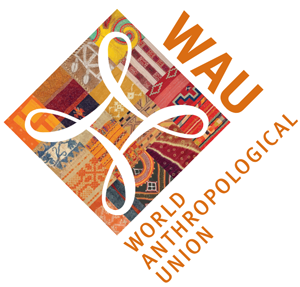
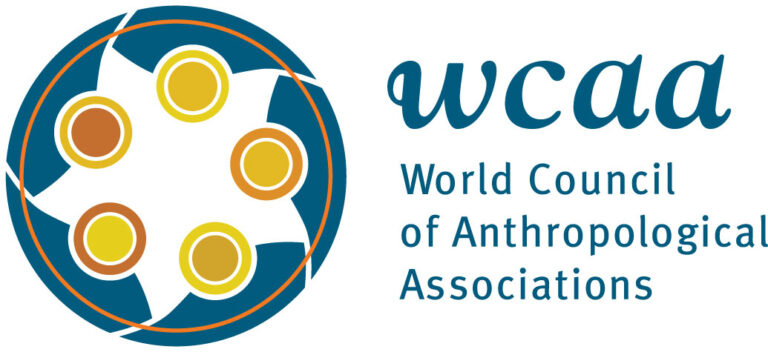


 Indonesia
Indonesia